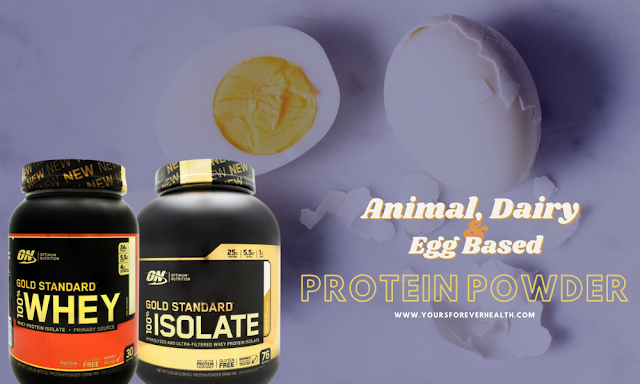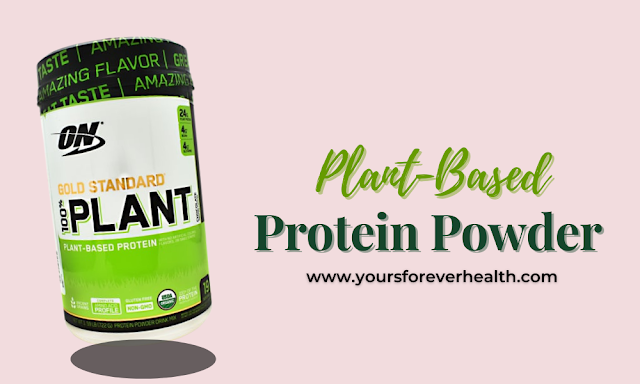Animal and Plant Based Sources of Best Protein For Muscle Gain
It is very hard to get the proper amount of protein without the usage of a protein powder, if you are looking to gain muscles and optimize the health. Protein helps to increase that feeling of fullness after we take out meal, so it can help in weight management of our body. All Vegetarians as well as vegans find it really hard to get all the essential amino acids through food alone, so few protein powder for muscle gain can help fill in the nutritional blanks in the process. The only people who do not need the protein supplement are the ones who do not work out regularly or those who are already consuming at least 30 grams of protein in single meal. Intake of protein is really important not only for muscle gain, but also for overall health.
Importance of Protein:
Our body needs protein in our diet to help it to repair body cells and make the new ones. It is really necessary for the development of our body. Protein gets broken down into smaller pieces known as amino acids, when we consume it . We need a number of essential amino acids in large amounts to maintain our good health.
Protein plays a critical role in the process that boost up our energy and carry oxygen throughout our body in the blood. It is responsible in the making of antibodies which fights strongly with all infections and illnesses and also keeps our existing cells healthy.
Protein and amino acids are generally found in animal sources such as red meat, milk, fish, and eggs, etc. Plant based sources of protein are soy, beans, legumes, nut butters, and some whole grains, etc. It is not necessary to eat animal products only to get all the protein you need in your diet, plant based sources are also as effective as animal based protein sources.
Types of protein For Muscle Gain:
Protein can be derived from Animal based sources like dairy, eggs, meat and plant based such as rice, soy beans or peas, etc. While most people meet their protein requirements by consuming a wide range of whole foods, protein supplements may also be used to help to reach your daily nutrition requirement.
Animal, Dairy and Egg Based Protein:
1. Whey Protein Powder
Whey protein is the most popularly used protein powder in the world. It comes with several advantages such as easy solubility in water, a complete protein containing all of the nine essential amino acids which are required for protein synthesis and repairment of muscles.
It is known as it is easily digested and absorbed after consumption, which helps us to feel satisfied quickly. Most healthy food sources or supplement stores offers different type of whey protein for you. It is the best protein for muscle gain.
Whey Concentrate
Whey Protein Concentrate contains around 70 to 80% protein, along with some lactose and fat. Mostly, people prefer the taste of protein concentrate over several types of whey protein.
Whey Protein Isolate
It contains more than 90% protein, with very less amount of lactose and fat than whey protein concentrate.
Whey Protein Hydrolysate
Hydrolysate Protein is a pre-digested form of whey protein. It consists around 99% protein, and dissolves much faster than whey protein. This kind of protein powder helps to taste alot bitter, even when you mix it with other ingredients also.
2. Casein Protein
Casein protein digests and absorbs really slowly than other protein such as whey protein. It is not as much soluble in water as whey protein but it keeps you satisfied for longer duration. This supplement can be used to help muscle recovery quickly, when daily protein needs are not met in your daily meals.
3. Egg protein
This type of egg proteins are a lactose-free option that generally offers around 80% protein, which consists all nine essential amino acids. Egg protein is considered one of the best protein for muscle gain.
It makes no change in blood bio-chemistry, or body composition and muscle strength among every one but shows increase in fat-free mass in around eight weeks.
4. Collagen Protein
This protein is not as effective as whey, casein or egg protein powders for muscle gain, but it supports joint health, digestion and skin elasticity. Due to its beneficial properties, it is one of the best protein for muscle gain.
Plant Based Protein
For people looking to build muscles, there are several protein powder options made from plants that vegans may consider.
1. Soy Protein
It is suitable for vegans and makes a great plant-based alternative to whey protein because it contains all the essential amino acids. It is also low in fat and carbs, but does not dissolve as easily as whey protein. it is one of the considerable options of best protein for muscle gain.
2. Pea Protein
While pea protein powder contains all nine essential amino acids, it’s low in methionine — this can be overcome by combining pea protein powder with protein powder made from brown rice.
It is also rich in iron, an important nutrient for women to consider. Due to its characteristics, it is one of the best protein for muscle gain.
3. Rice Protein
Protein powder made from brown rice offers all of the essential amino acids, but it is low in leucine. This can be overcome by mixing it with pea protein powder, or with a healthy eating pattern that supports your fitness goals.
4. Hemp Protein
It is a plant protein that is easy to digest. While it is not a complete protein source, it contains seven of the essential amino acids, as well as omega-3 fatty acids that are necessary for muscle building and maintaining overall health.
How much protein do you need?
To gain muscles and recover effectively from your workouts, you need to consume around 1.6 gm of protein per kilogram of bodyweight, each day.
A 2018 systematic review, meta-analysis and meta-regression, led by McMaster University, Canada, found that protein supplementation in conjunction with resistance training above 1.6g per kg has no further impact on muscle strength or size.
When it comes to boosting our body, more protein is not necessarily better. Consistently exceeding your daily protein intake can have undesirable results, which includes putting stress on your kidneys, dehydration or disruption of the digestive system.
Once you have trained enough for a while and your body has adapted, you can decrease your protein intake to approximately 1.2 gm per kg.
When you are not doing resistance training, you still need around 0.8 gm of protein per kg to stay healthy. You can consider taking one of these best protein for muscle gain.
A healthy and balanced diet will provide enough protein for your training and recovery of muscles. However, if you follow a vegan diet or combining resistance training with heavy endurance, you may find it easier with plant based protein to meet your needs each day.
If you are unsure if you are meeting your protein needs, a dietician or nutritionist can assess your daily intake and provide you a suitable diet plan. It is the best way for you to adjust your meals and snacks to optimal nutrition while you aiming for muscle building.
Post Your Ad Here


Comments